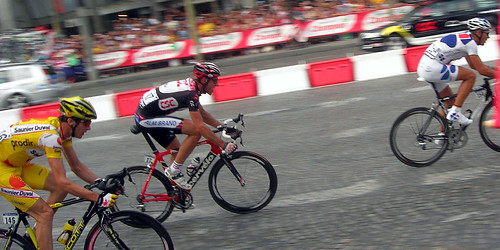Drugs in sport debate: Opposers response 2
[This is the last of the formal responses in the debate – both debaters will post closing comments at the end of the week. Don't forget to vote next week!]
by John William Devine
Frank Lampard’s ‘goal’ that never was in England’s World Cup defeat to Germany yesterday is an example of sport being held to ransom by tradition. The use of video technology – as used in elite level tennis and rugby – would have confirmed that his shot had crossed the line and England would have been awarded an equalising goal. FIFA continues to block the introduction of this technology on the grounds that human error in refereeing is part of the game. Does the prohibition against doping similarly stifle progress in sport?



